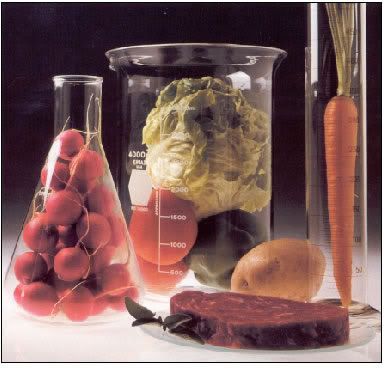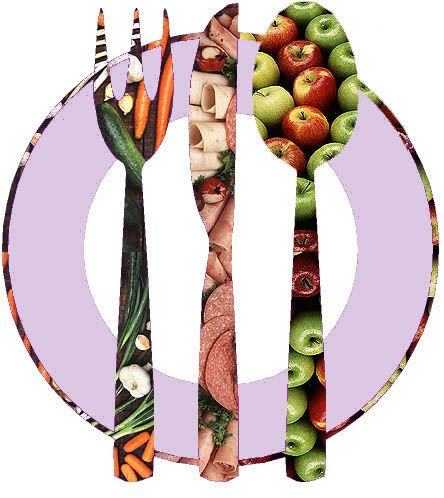Soy Protein, Isoflavones, and Cardiovascular Health.
A Summary of a Statement for Professionals From the American Heart Association Nutrition Committee.
This editorial summarizes the recent American Heart Association (AHA) Science Advisory on soy protein and isoflavones (phytoestrogens) published in the February 21, 2006, issue of Circulation. Soy protein and isoflavones have gained considerable attention for their potential role in improving risk factors for cardiovascular disease. This scientific advisory report assesses the more recent work published on soy protein and its component isoflavones. In 22 randomized trials, isolated soy protein with isoflavones compared with milk or other proteins decreased LDL cholesterol concentrations in most studies; the average effect was approximately 3%. This reduction is very small compared with the large amount of soy protein tested in these studies, averaging 50 g, approximately half the usual total daily protein intake. No significant effects were evident on HDL cholesterol, triglycerides, lipoprotein, or blood pressure.
This editorial summarizes the recent American Heart Association (AHA) Science Advisory on soy protein and isoflavones (phytoestrogens) published in the February 21, 2006, issue of Circulation. Soy protein and isoflavones have gained considerable attention for their potential role in improving risk factors for cardiovascular disease. This scientific advisory report assesses the more recent work published on soy protein and its component isoflavones. In 22 randomized trials, isolated soy protein with isoflavones compared with milk or other proteins decreased LDL cholesterol concentrations in most studies; the average effect was approximately 3%. This reduction is very small compared with the large amount of soy protein tested in these studies, averaging 50 g, approximately half the usual total daily protein intake. No significant effects were evident on HDL cholesterol, triglycerides, lipoprotein, or blood pressure.
Among 19 studies of soy isoflavones, the average effect on LDL cholesterol and other lipid risk factors was nil. Soy protein or isoflavones have not been shown to lessen vasomotor symptoms of menopause, and results are mixed regarding slowing of postmenopausal bone loss. The efficacy and safety of soy isoflavones for preventing or treating cancer of the breast, endometrium, and prostate are not established; evidence from clinical trials is meager and cautionary as regards a possible adverse effect. For this reason, use of isoflavone supplements in food or pills is not recommended. Thus, earlier research indicating that soy protein compared with other proteins has clinically important favorable effects has not enjoyed confirmation. In contrast, many soy products should be beneficial to cardiovascular and overall health because of their high content of polyunsaturated fats, fiber, vitamins, and minerals and low content of saturated fat.
In October 1999, the US Food and Drug Administration (FDA) approved labeling for foods containing soy protein as protective against coronary heart disease. The FDA based this decision on clinical studies showing that at least 25 g soy protein per day lowered total and LDL cholesterol. The FDA requires for the claim that a serving contain at least 6.25 g soy protein, 25% of the necessary daily amount, 25 g, expecting that foods containing soy protein would be eaten at least 4 times per day. The FDA also stated, “the evidence did not support a significant role for soy isoflavones in cholesterol-lowering effects of soy protein.”
In 2000, the AHA Nutrition Committee released a scientific advisory on soy protein and CVD. Since then, many well-controlled studies on soy protein and soy-derived isoflavones substantially added to the knowledge base. This scientific advisory report assesses the more recent work published on soy protein and its component isoflavones, focusing on blood LDL cholesterol and other cardiovascular disease risk factors, HDL cholesterol, triglycerides, lipoprotein, and blood pressure. The medical literature was searched comprehensively for original research publications on the effects of soy protein or isoflavones on cardiovascular disease risk factors, and all controlled trials that separately listed soy protein and isoflavone content were used. Most studies exchanged soy protein for other dietary proteins, and this evidence is evaluated in this report. Much less is known about the potential impact on risk factors for CVD of increasing total protein intake by adding soy or other plant protein in place of carbohydrate or fat; this important dietary change is currently being studied.
Animal proteins raise blood cholesterol concentrations in several animal species fed cholesterol-free semi-synthetic diets. Casein, the most prevalent protein in milk, has been the most often used, although other animal proteins such as pork and beef protein do the same. In contrast, when soy protein is substituted for the animal protein, hypercholesterolemia does not occur. Diets similar to those eaten by humans, based on either soy protein or casein, were fed to rabbits, and casein produced hypercholesterolemia as expected. However, when the same diets were fed to healthy people, the protein source did not affect blood cholesterol. In the late 1970s and early 1980s, Sirtori and colleagues found that diets high in soy protein, replacing nearly all the animal protein, substantially reduced blood cholesterol by 20% to 30% in severe hypercholesterolemia. Because the soy protein diets were also reduced in saturated fat and cholesterol and increased in polyunsaturated fat, and because the patients also often lost weight on the dietary protocols, the results were often confounded.
A meta-analysis published in 1995 found a trend that soy protein selectively reduced blood cholesterol in direct proportion to the degree of hypercholesterolemia. For example, in those with severely elevated blood cholesterol ( more than 335 mg/dL), soy protein reduced blood cholesterol by 20%, but if the initial blood cholesterol was less than 255 mg/dL, there was no significant effect. This meta-analysis was limited by the quality of the studies; studies were less well-controlled in people with hypercholesterolemia than in those with average cholesterol levels.
Effects of Soy Protein with Isoflavones
The 3 major isoflavones found in soybeans are genistin, daidzin, and glycitin. Their abundance in soy protein preparations varies widely and depends on the processing techniques used during production. These compounds have both estrogenic and antiestrogenic activity and effects that are unrelated to estrogen activity. Because the possibility was recognized that isoflavones could be the bioactive component attributed to soy protein, studies published in the late 1990s and beyond generally stated the amount and type of isoflavones in the soy protein. In 22 randomized trials, isolated soy protein with isoflavones was compared with casein or milk protein, wheat protein, or mixed animal proteins. The range of soy protein was 25 to 135 g per day, and of isoflavones 40 to 318 mg. LDL or non-HDL cholesterol concentrations decreased in most studies, statistically significantly, with an overall effect of [almost equal to]3% (weighted average).
A recent meta-analysis that included 10 studies published from 1995 to 2002 found a similar percentage reduction in LDL cholesterol with no dose effect. There is no apparent dose effect; the 8 studies with soy protein 50 g or more showed a similar drop in LDL cholesterol concentration to those using a smaller amount of soy, [almost equal to]3% overall. This cut point for daily soy protein intake, 50 g, defines a large amount, half or more of the daily average total protein intake in the US. No significant effects were evident on HDL cholesterol or triglycerides in most of the studies; the weighted average effects were very small, +1.5% for HDL cholesterol and -5% for triglycerides.
Soy Protein Without Isoflavones
Soy protein, from which isoflavones were removed, was studied in 7 trials, and compared with casein or milk protein or various animal proteins. Two of the studies showed small significant decreases in LDL cholesterol. These studies were very carefully controlled feeding studies, all meals being formulated according to strict nutritional specifications, and complete meals were provided to the participants. They were specifically designed to sort out the effects of the protein from the isoflavones, and showed an effect of protein but not isoflavones on LDL cholesterol. The declines in LDL cholesterol were small, 2% to 7%, relative to the large amounts of soy protein eaten daily, 50 to 55 g. However, other well-controlled studies did not find significant effects of soy protein on LDL cholesterol, and the average change across all 7 studies is only a 1% to 2% decrease. Changes generally were small in HDL cholesterol and triglycerides, and nonsignificant in 6 of the 7 trials. No dose effect is evident.
Isoflavone Effects
Some studies compared soy protein that did or did not contain isoflavones whereas other studies tested isoflavones in pill form compared with placebo. A wide range of isoflavone amounts were studied. One study compared the effect of isoflavones provided with either soy or animal proteins. Among these 19 studies, only 3 showed significant reduction in LDL cholesterol concentration, and the effect among all studies (weighted average) was nil, 0%. Changes in HDL cholesterol and triglycerides were not significant and showed no trend toward an effect of isoflavones. Despite large increases in blood isoflavone concentrations, there is no indication of a dose effect on blood lipids. A recent meta-analysis concluded that isoflavones do not affect blood lipid concentrations.
Influence of Initial Blood LDL-Cholesterol Level
Lichtenstein et al and Crouse et al found slightly more LDL cholesterol reduction in people with LDL cholesterol above 160 to 164 mg/dL than with lower levels, although Dent et al did not find an effect in women with hypercholesterolemia compared with average cholesterol. However, a larger percentage reduction in LDL cholesterol in hypercholesterolemia is not evident among the 22 recent trials. Among studies of isoflavones, there is no relation evident between initial cholesterol and cholesterol-lowering.
Influence of Serum Cholesterol-Lowering Diet
In 11 of the studies, soy protein or isoflavones were tested in combination with a serum cholesterol-lowering diet. The average reduction in LDL in these studies was 2%, similar to the full group. Thus, the effect on LDL of soy protein or isoflavones does not appear to be modulated by the saturated fat and cholesterol content of the diet.
Effects on Lipoprotein
Lipoprotein, an LDL-like lipoprotein that is an independent predictor of CVD was increased by soy protein in 2 studies and unchanged in 9 others. Meinertz et al found that alcohol-extracted soy protein, lacking isoflavones, did not raise Lp(a) as found in their earlier study of intact soy protein,50 suggesting an adverse effect of isoflavones. However, isoflavones had no effect on Lp(a) in 6 other studies, nor did soy protein that contained isoflavones.
Effects on Blood Pressure
Several studies tested the effect of soy protein with isoflavones compared with casein or milk protein on blood pressure. Blood pressure decreased significantly in 1 study, but not in the other 5. The weighted average change is -1 mm Hg systolic blood pressure. Several studies that evaluated the effect of soy isoflavones also did not find a significant effect on blood pressure.
Conclusions
Earlier research indicating that soy protein compared with other proteins has clinically important favorable effects on LDL cholesterol and other cardiovascular disease risk factors has not enjoyed confirmation from many studies reported during the past 10 years. A very large amount of soy protein, comprising more than half of daily protein intake, may lower LDL cholesterol by just a few percent when it replaces dairy protein or a mixture of animal proteins. The evidence favors soy protein rather than soy isoflavones as the responsible nutrient.
However, at this time the possibility cannot be ruled out that another component in soybeans could be the active factor. No benefit is evident on HDL cholesterol, triglycerides, lipoprotein(a), or blood pressure. Thus, the direct cardiovascular health benefit of soy protein or of isoflavone supplements is minimal at best. Soy protein or isoflavones have not been shown to improve vasomotor symptoms of menopause, and results are mixed regarding slowing of postmenopausal bone loss. The efficacy and safety of soy isoflavones for preventing or treating cancer of the breast, endometrium, and prostate are not established; evidence from clinical trials is meager and cautionary as regards a possible adverse effect. For this reason, use of isoflavone supplements in food or pills is not recommended.
In contrast, soy products such as tofu, “soy butter,” “soy nuts,” or some soy burgers should be beneficial to cardiovascular and overall health because of their high content of polyunsaturated fats, fiber, vitamins, and minerals and low content of saturated fat. Using these and other soy foods to replace foods high in animal protein that contain saturated fat and cholesterol may confer benefits to cardiovascular health. Soy protein may also be used to increase total dietary protein intake and reduce carbohydrate or fat intake. However, much less is known about the potential impact on risk factors for CVD of high protein diets. In the meantime, these remain dynamic areas for research. The AHA will continue to monitor the results and modify its advisory statement as needed.




0 Comments:
Post a Comment
<< Home